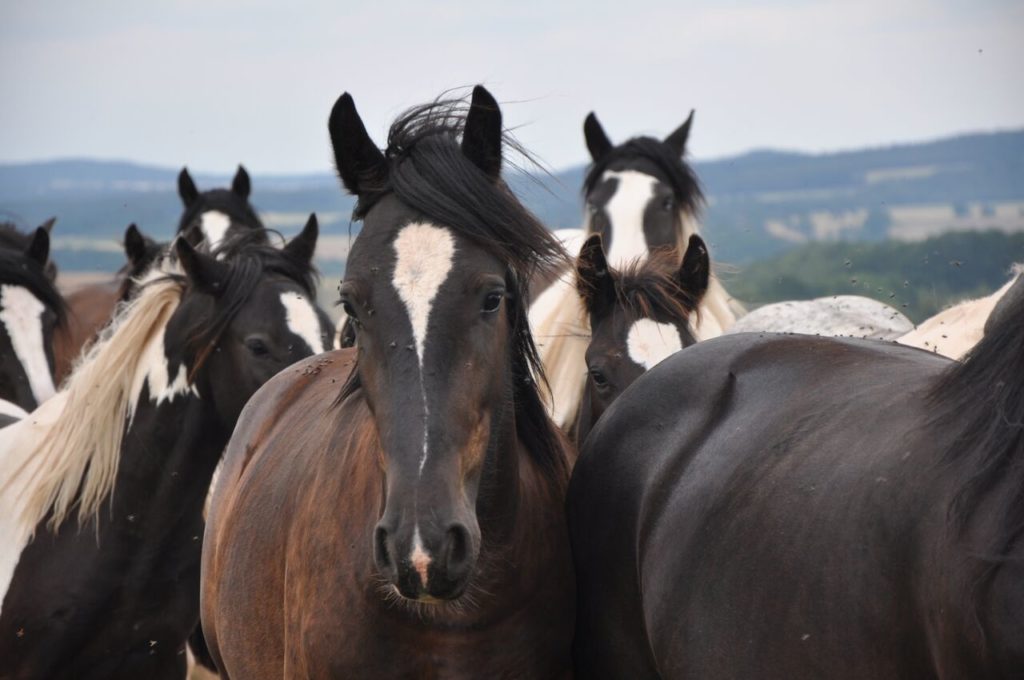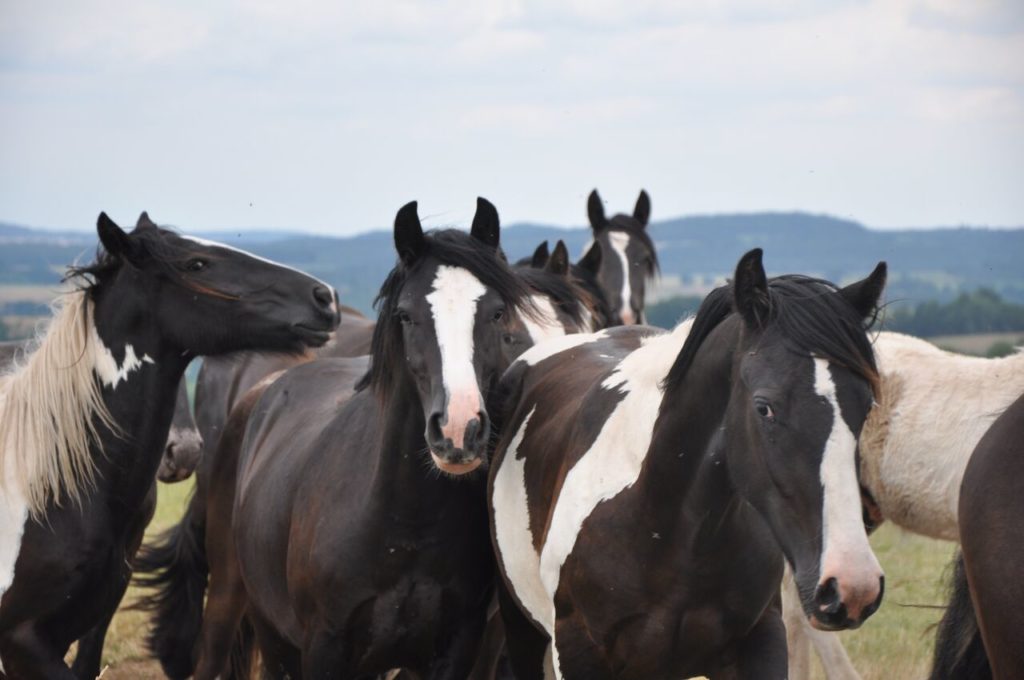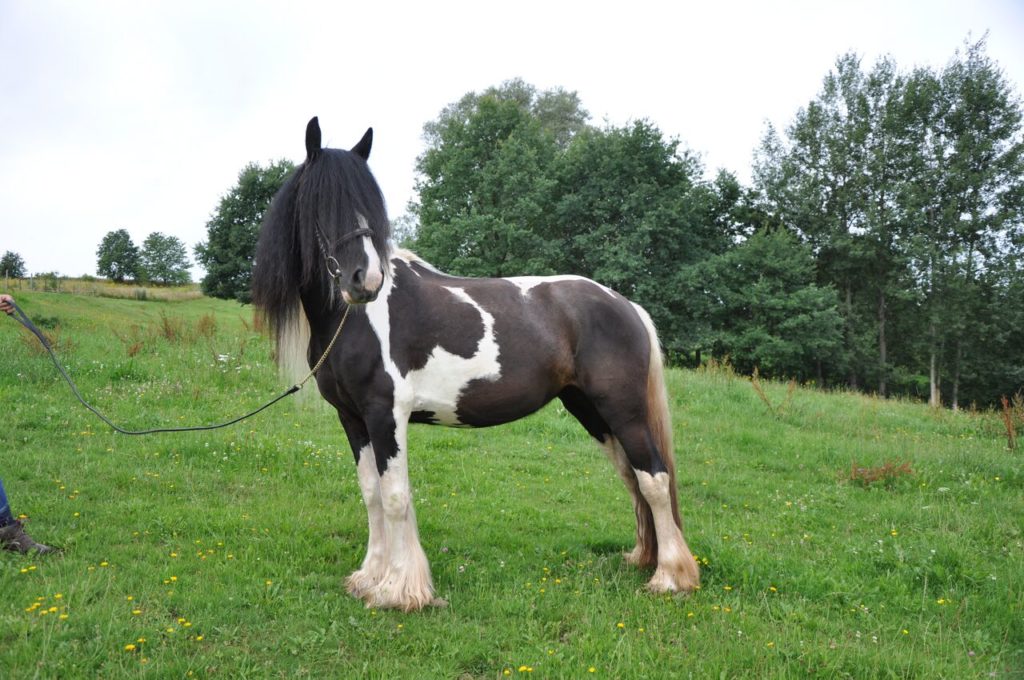What is PSSM1?
Polysaccharide Storage Myopathy (PSSM1) is a dominant autosomal hereditary condition that can cause a genetic form of tying-up with muscle damage and inability to move. One form of PSSM1 is in part a result of a single base pair substitution in GYS1 gene, thereby changing the amino acid sequence of the glycogen synthase enzyme.
Some horses make and store abnormal muscle glycogen and cannot tolerate dietary starches and sugars. Horses with PSSM1 can be maintained with low-starch and low-sugar rations and precise exercise protocols. In some horses symptoms may begin by 2 to 3 years of age while others can remain subclinical. Clinical signs can include skin twitching, stiffness, firm painful muscles, sweating, weakness, and reluctance to move with light exercise. Occasionally gait abnormalities, mild colic and muscle wasting may also occur. In many cases horse that have tested positive have had no history of ‘tying-up’ or other symptoms associated with PSSM1.

Managing PSSM1 positive horses
Horses that test positive for 1 or 2 copies of the GYS1 mutation should be carefully managed through diet and exercise to help prevent the onset of the disease. For many horses affected by PSSM1, strict control of diet and exercise can reduce, or even prevent the onset of symptoms related to PSSM1. Eliminating many high sugary foods in their diet and consistent exercise are two simple ways to help prevent the disease from developing. Although taking these simple steps may not be effective in every situation, research has shown that often they will provide positive results. It is always important to let your veterinarian know if an animal has tested positive for PSSM1.

Testing for PSSM1
It is possible for you to test for PSSM1 through the PSHT studbook. To test for PSSM1, a DNA (hair sample) should be collected from your horse by a vet or studbook consultant. In the case of a vet collecting the hair sample, the vet should sign that the hair sample came for your horse. The hair sample should then be forwarded to us, with the required information, and we will do the rest.
PSHT / NSVT only accept the results from a limited amount of laboratories. Currently the studbook uses animalgeneticeu/us, and etalonddx (when full colour panel is also requested)

PSHT rules regarding PSSM1
All stallions submitted for testing must be PSSM N/N to be eligible for approval.
All mares and foals (from 2020) are to be tested during admission and / or inspection. If both parents have already been N / N tested, this is not necessary.
All PSSM1 results are processed in our system and published in passports and inspection booklets, where possible.

